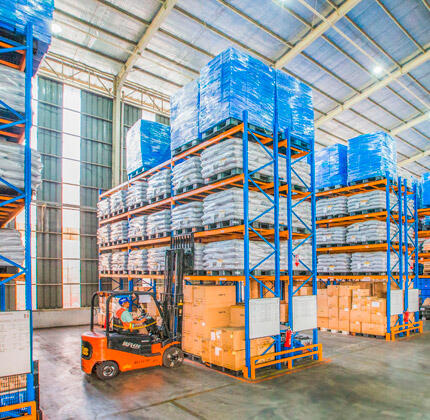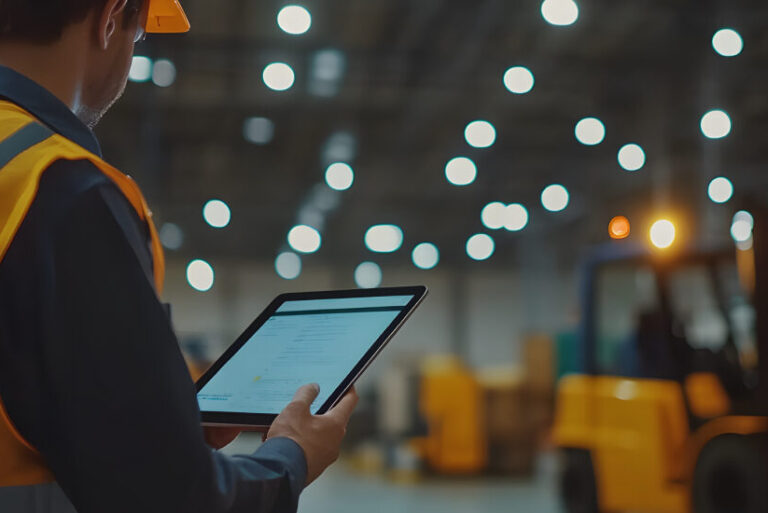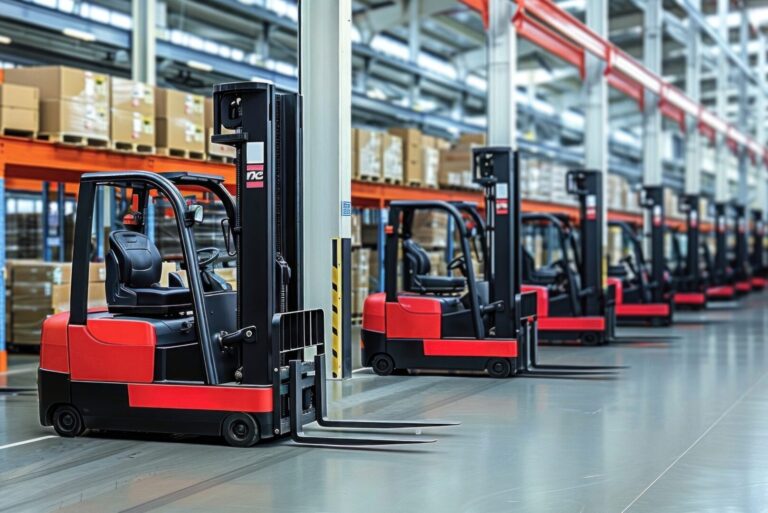The Costs and Benefits of Electric Forklifts
October 5, 2023
Electric forklifts have gained significant traction as a viable alternative to their traditional internal combustion engine (ICE) counterparts. As fleet owners look for alternatives to meet state compliance and take advantage of long-term savings, examining the costs and benefits of electric forklifts becomes crucial.
This article analyzes the benefits of electric forklifts and the costs associated with switching to electric, and explores how fleet owners can save when they transition.
Electric Forklifts Costs: Considerations

While these prices are understandably off-putting to warehouse operators, the costs of electric forklifts can quickly be outweighed by their benefits.
The Benefits of Electric Forklifts
A number of states in the US are encouraging a transition to electric forklifts and other material handling equipment (MHE) through rebate programs that support sustainability goals. Many warehouse operators are hesitant to invest in electric forklifts due to their high costs; however, the advantages of electric forklifts extend to operational and financial benefits for warehouse owners and operators, which can lead to long-term savings that offset the initial investment costs completely.
Maintenance Costs and Energy Efficiency
One of the most significant advantages of electric forklifts is their reduced operating costs. Electric forklifts boast significantly lower operating costs compared to internal combustion forklifts. Electricity is far less expensive than the propane or diesel used by ICE forklifts and is far more fuel-efficient, which can be a major source of long-term savings, especially for warehouses that operate large fleets of heavily-utilized forklifts.
Additionally, electric forklifts require significantly less maintenance over their service life, with some brands reporting no major repairs for the first 20,000 miles of usage. This can result in major long-term savings in operational and maintenance costs, with ICE forklifts requiring an average of $1,500 in repairs per year, as compared to an average of $500 per year for electric forklifts.
Improved Air Quality
Another advantage electric forklifts hold over their ICE counterparts is their zero tailpipe emissions. This contributes to improved indoor air quality and is ideal for indoor applications where ventilation may be a concern. This not only ensures a healthier work environment for operators but also aligns with sustainability goals. For operators in California who are required to abide by AQMD WAIRE Program fees, this can be a significant source of savings.
Improved Performance
One aspect of electric forklifts that often goes overlooked is their enhanced performance over ICE forklifts. Electric forklifts offer smooth and consistent acceleration, making them well-suited for indoor applications where precise handling is essential. They also have impressive torque at low speeds, which enhances their performance in tight spaces. For warehouses operating fragile materials, this can greatly reduce liability associated with damaging products.
Additionally, electric forklifts offer smoother and quieter rides, which many operators have reported leading to better working conditions and reduced concerns for worker health and safety.
Not only do these benefits help bring in long-term savings to warehouse operators and forklift owners, but many states offer rebate and funding programs that help make the transition to electric forklifts even easier. Learn how SCT can help you sign up and earn with our Smart Rebates program.
Learn how warehouse operators are taking advantage of funding opportunities to further offset the costs of their electric vehicles: Success Stories: How Businesses Are Offsetting the Cost of Transitioning to Electric
Related Posts









